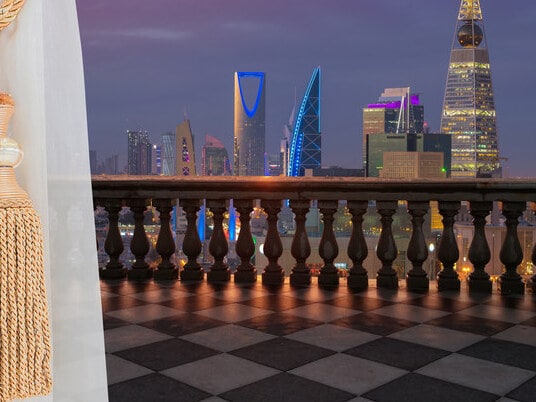According to data from STR, hotel construction activity in the Middle East is predominantly led by Saudi Arabia.
According to recent data released by STR, a leading hospitality data and analytics company, hotel construction activity in the Middle East is predominantly led by Saudi Arabia. The data shows that the kingdom has a significant lead over its neighboring countries in terms of hotel construction and development.
The STR data reveals that Saudi Arabia has a total of 40,768 rooms currently under construction, representing 53.6% of the total hotel rooms being built in the Middle East. The closest contender, the United Arab Emirates (UAE), has just over half of that, with 20,914 rooms currently under construction.
Furthermore, Saudi Arabia has the largest number of hotel rooms in the region in the planning and final planning stages, indicating that the country is committed to further expanding its hospitality sector. The kingdom has a total of 56,348 rooms in these two stages, compared to the UAE’s 23,454 rooms.
The data highlights the growing importance of Saudi Arabia as a destination for business and leisure travelers. In recent years, the kingdom has invested heavily in developing its tourism industry as part of its economic diversification strategy, Vision 2030. The strategy aims to reduce the country’s dependence on oil revenues by promoting sectors such as tourism and hospitality.
One of the flagship projects of Vision 2030 is the development of the Red Sea Project, a luxury tourism destination on the country’s western coast. The project aims to attract one million visitors annually by 2030 and will include hotels, resorts, and other leisure facilities. The Red Sea Project is expected to create tens of thousands of jobs and contribute significantly to the country’s economy.
The STR data indicates that the Saudi government’s investment in tourism is paying off, with the country emerging as a leader in hotel construction and development in the Middle East. The hospitality sector is a key contributor to the kingdom’s economy, and the government’s efforts to promote tourism are expected to create thousands of new jobs and boost economic growth.
Despite the COVID-19 pandemic, Saudi Arabia has continued to invest in its hospitality sector, with several new hotels and resorts opening in recent months. The kingdom has implemented strict health and safety measures to ensure the safety of both guests and employees, and the measures have been well-received by travelers.
In addition to its investment in tourism, Saudi Arabia has also made significant investments in infrastructure, including the expansion of its airports and the development of new transport links. These investments have made the kingdom more accessible to tourists and business travelers and have contributed to the growth of the hospitality sector.
The STR data also reveals that the majority of the hotel rooms under construction in Saudi Arabia are in the luxury and upper-upscale segments, indicating that the country is targeting high-end travelers. The data shows that 83% of the rooms under construction in the kingdom are in these two segments, compared to 54% in the UAE.
The focus on luxury and upper-upscale hotels is in line with the Red Sea Project’s objectives, which aims to attract high-end travelers and position Saudi Arabia as a luxury tourism destination. The project is also part of the kingdom’s efforts to increase tourism spending, with a focus on attracting high-spending travelers.
In conclusion, the STR data highlights the growing importance of Saudi Arabia as a destination for business and leisure travelers. The kingdom’s investment in tourism and hospitality is paying off, with the country emerging as a leader in hotel construction and development in the Middle East. The hospitality sector is a key contributor to the country’s economy, and the government’s efforts to promote tourism are expected to create thousands of new jobs and boost economic growth. The focus on luxury and upper-upscale hotels is in line with the kingdom’s objectives to attract high-spending travelers and position Saudi Arabia as a luxury tourism destination.






austria weed
… [Trackback]
[…] Read More Information here to that Topic: ceoweeklyuae.com/according-to-data-from-str-hotel-construction-activity-in-the-middle-east-is-predominantly-led-by-saudi-arabia/ […]
December 26, 2024วิธีคิดเงินบอลสเต็ป
… [Trackback]
[…] Here you will find 10776 more Info to that Topic: ceoweeklyuae.com/according-to-data-from-str-hotel-construction-activity-in-the-middle-east-is-predominantly-led-by-saudi-arabia/ […]
January 23, 2025Bauc ET
… [Trackback]
[…] Find More Information here to that Topic: ceoweeklyuae.com/according-to-data-from-str-hotel-construction-activity-in-the-middle-east-is-predominantly-led-by-saudi-arabia/ […]
January 24, 2025slot99
… [Trackback]
[…] Read More Info here on that Topic: ceoweeklyuae.com/according-to-data-from-str-hotel-construction-activity-in-the-middle-east-is-predominantly-led-by-saudi-arabia/ […]
January 25, 2025save money
… [Trackback]
[…] Here you can find 32766 more Information to that Topic: ceoweeklyuae.com/according-to-data-from-str-hotel-construction-activity-in-the-middle-east-is-predominantly-led-by-saudi-arabia/ […]
February 5, 2025vakantie umbrie
… [Trackback]
[…] Find More on on that Topic: ceoweeklyuae.com/according-to-data-from-str-hotel-construction-activity-in-the-middle-east-is-predominantly-led-by-saudi-arabia/ […]
February 25, 2025Lowara distributor water pump
… [Trackback]
[…] Info on that Topic: ceoweeklyuae.com/according-to-data-from-str-hotel-construction-activity-in-the-middle-east-is-predominantly-led-by-saudi-arabia/ […]
March 1, 2025789bet
… [Trackback]
[…] Info on that Topic: ceoweeklyuae.com/according-to-data-from-str-hotel-construction-activity-in-the-middle-east-is-predominantly-led-by-saudi-arabia/ […]
March 3, 2025โรงงานเฟอร์นิเจอร์จีน
… [Trackback]
[…] Read More to that Topic: ceoweeklyuae.com/according-to-data-from-str-hotel-construction-activity-in-the-middle-east-is-predominantly-led-by-saudi-arabia/ […]
March 28, 2025find out here now
… [Trackback]
[…] There you will find 1430 additional Information on that Topic: ceoweeklyuae.com/according-to-data-from-str-hotel-construction-activity-in-the-middle-east-is-predominantly-led-by-saudi-arabia/ […]
April 10, 2025play Aviator in India
… [Trackback]
[…] Info to that Topic: ceoweeklyuae.com/according-to-data-from-str-hotel-construction-activity-in-the-middle-east-is-predominantly-led-by-saudi-arabia/ […]
April 16, 2025